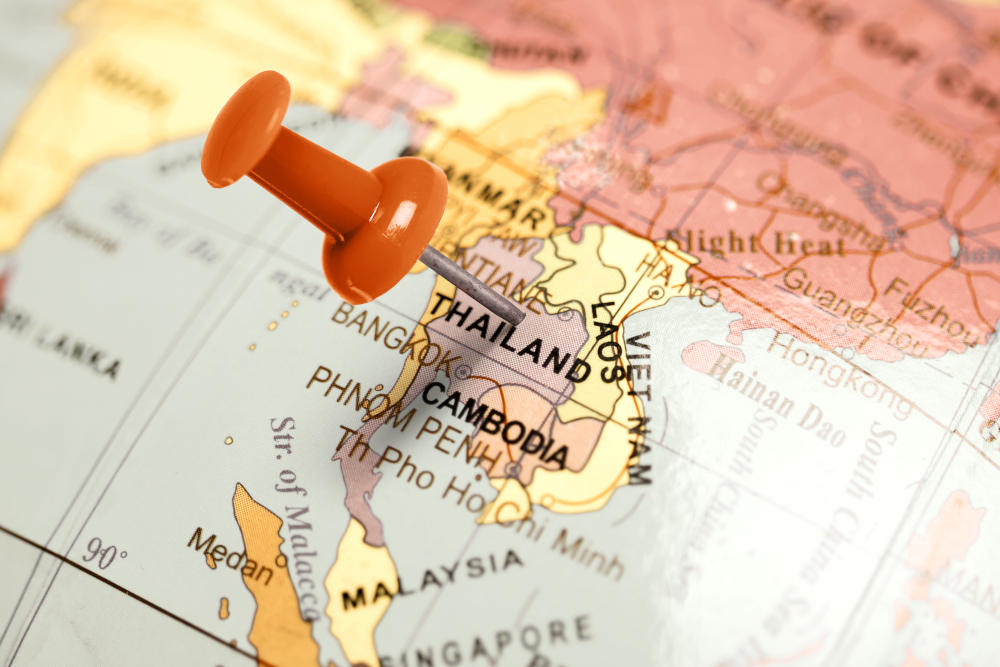A plan to re-criminalize cannabis in Thailand could cost CBD stakeholders millions of dollars in lost investments, a key trade group has warned.
The Thai Hemp and Cannabis Industry Association (HCIA) said a draft cannabis law floated earlier this year could turn off investors by severely restricting the business in CBD and other extracts derived from hemp flowers.
The cannabis law, intended mainly to reverse the previous government’s historic – if mismanaged – efforts to legalize cannabis, is expected to be in place by the end of the year, Health Minister Cholnan Srikaew has said.
$274 million at risk
“If the government goes ahead with the plan to criminalize cannabis and hemp to curb the abuse, manufacturers and investors of these products could stand to lose over 10 billion baht ($274 million) of investment,” said Tossaporn Nilkamhang, HCIA president. “The move will also affect the confidence of investors in the government’s future projects.”
The government of Prime Minister Srettha Thavisin is on record as saying it intends to strictly regulate the production and sale of CBD, limiting use to medical products and research initiatives.
Thavisin’s center-left Pheu Thai Party, which has traditionally supported farmers, said it plans to develop industrial hemp primarily for non-psychoactive products such as seed-based foods, textiles, and building materials.
Restricted to medical
CBD and other hemp-derived cannabinoids extracted from hemp flowers would only be available by doctor’s prescription, according to signals from Thavisin’s circles both before and after he became Prime Minister last August.
The Thavisin government’s position on CBD is a departure from the previous government’s policy, which allowed CBD to be used in a wide range of products, including food, beverages and cosmetics.
Nilkamhang urged the government to reconsider the move and work with operators to promote marijuana and hemp as new crops, while crafting rules that would prevent drug abuse and access to cannabis products by youth. Instead of recriminalizing cannabis, the government could use the draft law, the Thai Cannabis-Hemp Act, to set down specific regulations after consulting with stakeholders, Nilkamhang said.
Key for hemp extract producers, Nilkamhang said the proposed law should stipulate that CBD products with less than 0.2% THC should not be classified as drugs but as over-the-counter health aids legal to produce, advertise and sell.
The Thai government in late 2020 started allowing manufacturers to produce hemp seed oil- and extract-based cosmetics, and products from plant stalks, and later approved hempseed oil derivatives for use in food and drinks.
Market estimates
Even before it was legalized, CBD became commonplace in Thailand. Some estimates showed the over-the-counter CBD business reached $55 million – 70-80% of the Thai legal cannabis market – in 2021, as producers eyed the possibilities in wellness and cosmetics, and food and beverages. Few figures on total market value were developed after that as the worldwide crash in the CBD business took hold.
Registrations of CBD products such as food supplements, drinks, herbal palliatives and cosmetics rose 33% in the first quarter of this year, reaching a total of 707, according to Nilkamhang.
Cannabis policies came into effect in 2022 that removed hemp and marijuana from the Thai Narcotics Act. While CBD with a THC content of less than 0.2% therefore became technically legal, a more extensive regulatory structure was never really developed before the government changed hands last year.

